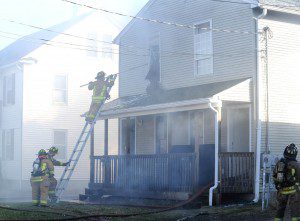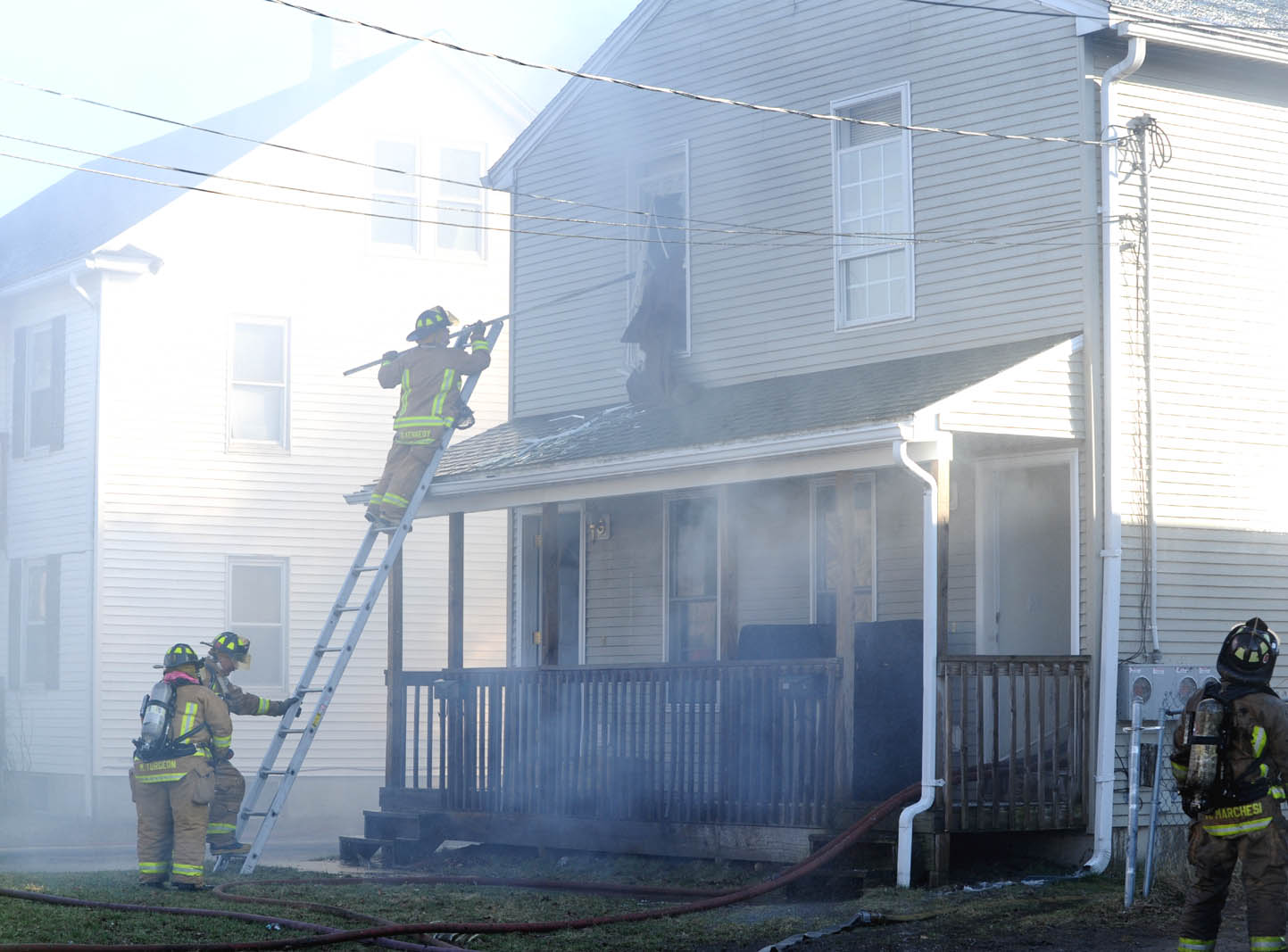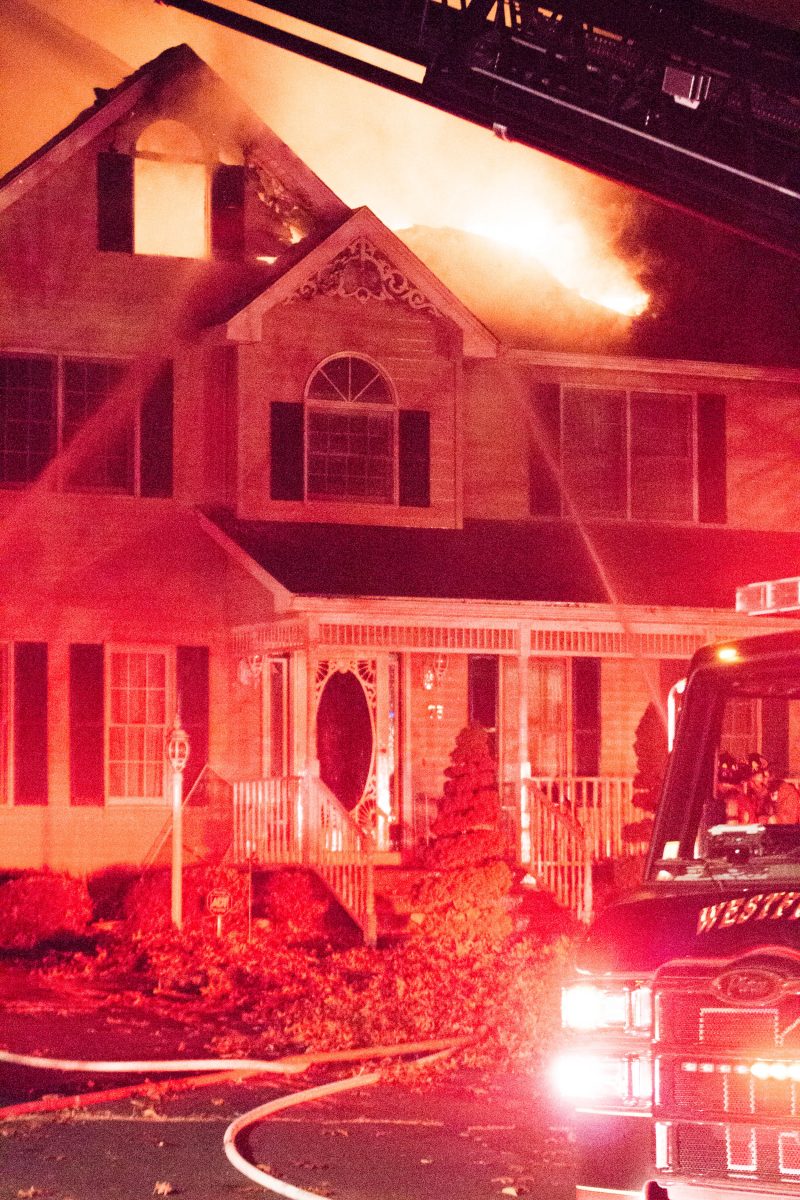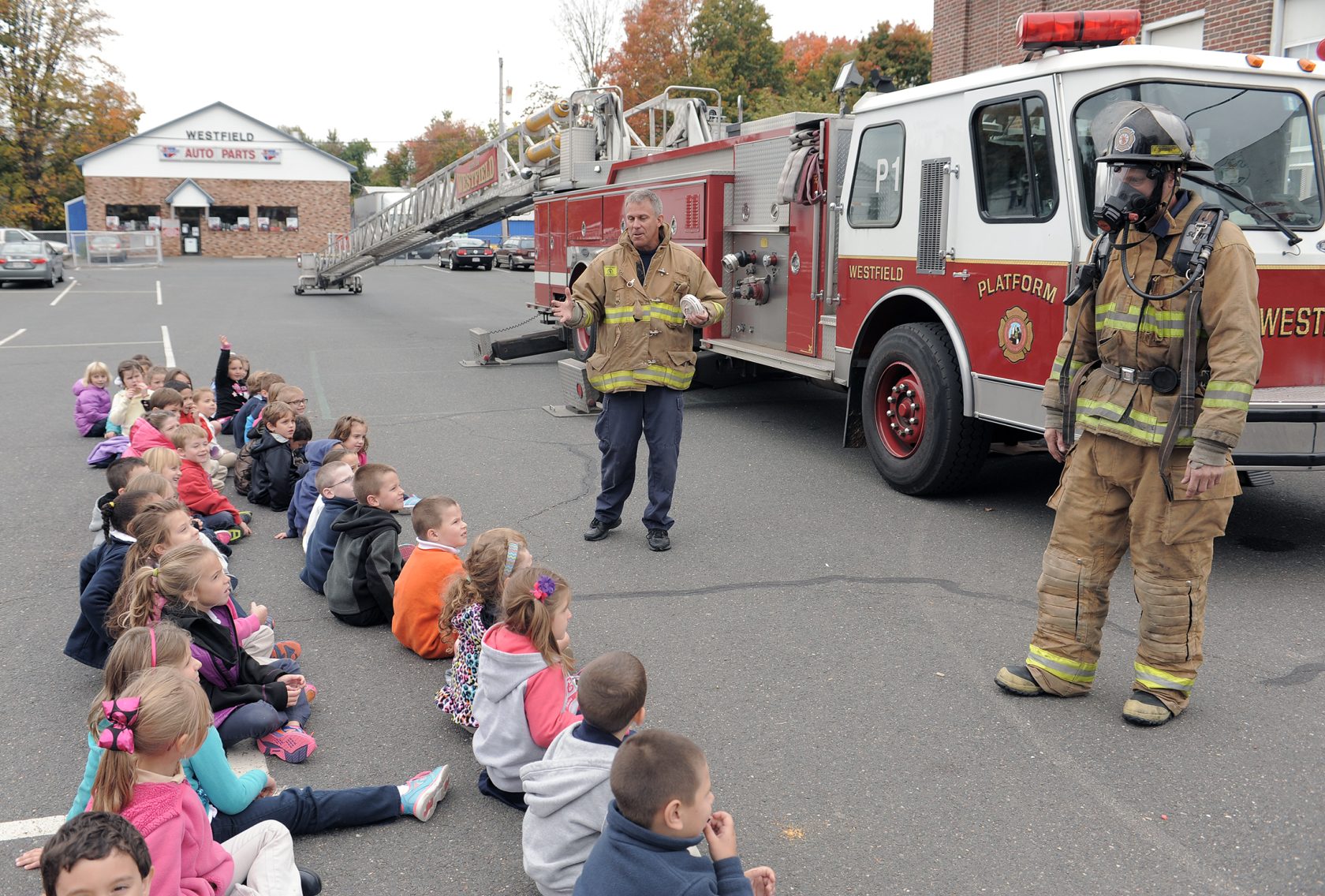
An April fire which caused significant damage to a Notre Dame Street residence was sparked by a carelessly discarded cigarette butt. (File photo by Carl E. Hartdegen)
WESTFIELD – Although the permitted burning season concluded at the end of April the threat of brush fires in the city is not over.
Deputy Fire Chief Patrick Egloff, the fire prevention officer at the Westfield Fire Department, said that the lack of rain coupled with breezy weather means that fires are still a real concern in the city.
Egloff said that the current threat of fire is mostly from people smoking or cooking so residents can have a direct impact on fire prevention by exercising caution.
Egloff’s primary advice for residents is “Don’t smoke” but he went on to say “if you do smoke be diligent about proper disposal of smoking material.”
He said that recently two fires were sparked by careless disposal of cigarettes.
On April 3, he said a Notre Dame resident “flipped a cigarette butt off the deck” and it blew into a trash area.
“On that day, the wind kept it going” he said and soon the house was fully involved.
A second fire that day was also apparently sparked by a cigarette butt did less damage on Orange Street, where dry leaves ignited and the fire spread to a porch but was extinguished before it did serious damage.
The other area of fire prevention Egloff mentioned was outside cooking.
Although cooking fires are not specifically permitted by the city ordinance which says no person may “set on fire any wood, straw, shavings or other combustible matter,” Egloff said that firefighters allow responsible grilling outside.
While cooking, he said, residents should “make sure it’s attended and you have some sort of extinguishing agent readily available.”
He said that cooking fires should be thoroughly extinguished once the cooking is done. He said that the coals should be doused with copious amounts of water and, when the fire is thought to be out, “wait five minutes” and check again he said.
Other fire threats, such as trains and weather, are less susceptible to prevention by residents but Egloff said that prompt reporting can be a big help.
“When fires are reported in the early stages there’s a good chance we can put them out quickly” he aid.
Sparks generated by trains braking on the rails can cause fires near the tracks and he said that the fires which sometimes blaze on Tekoa Mountain are often sparked by trains.
“We’ve had plenty of fires from trains going through” he said and said that although thunderstorms are usually associated with rain they can also start fires.
“When it’s really dry a lightning strike can cause a fire” he said.
But the real salvation from the risk of fire only comes from Mother Nature.
We need heavy soaking rain to really alleviate the fire concern, he said. “The rain we got this week wasn’t enough.”




